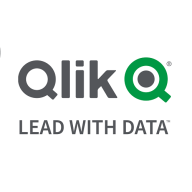

Qlik Compose and Equalum are competing data integration solutions in enterprise environments. While Equalum has an advantage with its comprehensive feature set, Qlik Compose stands out in terms of pricing and customer support.
Features: Qlik Compose offers data warehouse automation with robust ETL processes and seamless integration with cloud platforms. It features data modeling, code generation, and efficient warehouse automation. Equalum provides real-time data ingestion and advanced stream processing, focusing on reducing data latency with CDC replication, streaming ETL, and batch processing capabilities.
Room for Improvement: Qlik Compose could enhance its real-time data processing capabilities and expand its no-code interface options. It also has room to improve its customization flexibility and advanced stream processing functionalities. Equalum may benefit from refining user interface intuitiveness, expanding documentation, and enhancing batch ETL capabilities for broader use case scenarios.
Ease of Deployment and Customer Service: Qlik Compose offers a straightforward deployment with a user-friendly interface and highly responsive customer service praised for quality support. Equalum supports a flexible, modular deployment approach, which may involve a steeper learning curve but allows for customization advantages, supported by responsive company assistance.
Pricing and ROI: Qlik Compose offers a cost-effective pricing model suitable for various business sizes, maintaining a favorable ROI through low initial setup costs and efficient resource utilization. Equalum may have higher costs due to advanced features but appeals to businesses emphasizing real-time capabilities despite its potentially higher pricing, delivering returns in performance-centric environments.

Equalum is a fully-managed, end-to-end data integration and real-time data streaming platform, powered by industry-leading change data capture (CDC) tech and modern data transformation capabilities (streaming ETL and ELT). Equalum's enterprise-grade platform features intuitive UI allowing you to build robust, real-time data pipelines in minutes.
Qlik Sense is a powerful business intelligence tool that offers a range of features to help organizations make faster and more informed decisions. Its primary use cases include operational and financial dashboards, self-service reporting, and centralized access to cross-functional reports. The solution is praised for its mobile platform, ease of use, data-sharing capabilities, and extensibility.
Qlik Sense has helped organizations improve data literacy, reduce time consumed in complex reports, and provide widely available MI to senior stakeholders. It also enables self-service analytics, improves data quality and governance, enhances collaboration, and reduces costs.
We monitor all Data Integration reviews to prevent fraudulent reviews and keep review quality high. We do not post reviews by company employees or direct competitors. We validate each review for authenticity via cross-reference with LinkedIn, and personal follow-up with the reviewer when necessary.